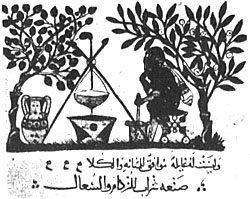|
The Arabs were not the only people subject to massacre. The name of Sultan Abdul Hamid is written in blood and horror in Armenian history. Before the beginning of World War I there were two million, five hundred thousand Armenians in Turkey, Armenia and Iraq. The massacre unleashed by Abdul Hamid was a systematic genocide against the Armenians, and it is estimated that more than a million died at the hands of the Turks. Thousands of others fled, losing land and possessions, to nearby countries for refuge. They went in terror into Syria, the Lebanon and Palestine, found new homes and new friends, and established roots in Jerusalem, Beirut, Damascus, Amman and other towns of the Middle East. In the twentieth century, Britain encouraged the already nationalizing Wahabies of Arabia to lead a successful revolt against Turkey. This campaign, in which a young British army officer emerged as the heroic "Lawrence of Arabia" finally released the Arab world from the four hundred years of Turkish hegemony. The Betrayals The Arabs were now faced with other problems to overcome. They had been promised self-determination and independent governments in return for bringing about the downfall of the Turks during World War I. Instead, through such secret treaties as Sykes-Picot, and in spite of the findings of President Wilson's Crane Commission, the world gave them new "protectors." Thus they were forced to wait additional decades until they could wrest from the Big Powers their own land, their own freedom, their own right to govern themselves. In the Sykes-Picot treaty, Britain and France secretly divided up some of the Arab territory into mandates, placing the Arabs of Palestine under
English "protection," and the Arabs of Syria and the Lebanon under French. In other treaties, the Arabs of Libya became wards of Italy, while Algeria, a conquest of France from 1830, continued to struggle against a country which refused to consider Algeria even a colony, but insisted that she was part of mainland France. Egypt would not be free of the British presence until 1954, two years after a bloodless revolution led by Ghamal Abdel Nasser against the Mamluk monarchy. Altogether, it was not until after World War II and the formation of the United Nations that most of the Arab countries could finally govern themselves. The one exception is the Palestinian nation whose problem continues to await a solution. Physician preparing medicine. |
